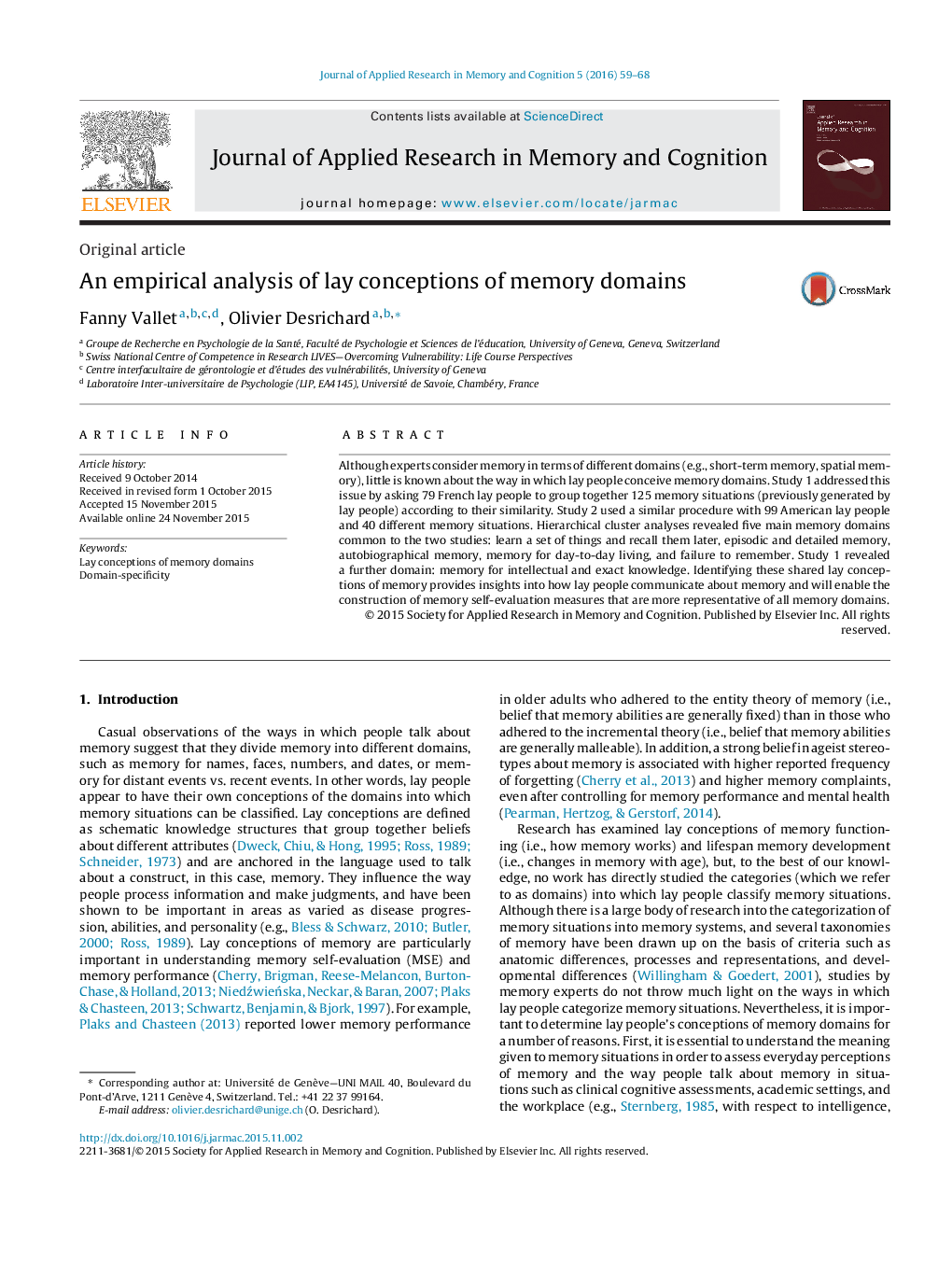| Article ID | Journal | Published Year | Pages | File Type |
|---|---|---|---|---|
| 881543 | Journal of Applied Research in Memory and Cognition | 2016 | 10 Pages |
•The aim of the research was to identify memory domains used by lay people to categorize memory situations.•In two studies, lay participants had to sort memory situations previously created by another group of lay participants.•Main memory domains are: learn and recall, episodic, autobiographical, day-to-day living and failure to remember.
Although experts consider memory in terms of different domains (e.g., short-term memory, spatial memory), little is known about the way in which lay people conceive memory domains. Study 1 addressed this issue by asking 79 French lay people to group together 125 memory situations (previously generated by lay people) according to their similarity. Study 2 used a similar procedure with 99 American lay people and 40 different memory situations. Hierarchical cluster analyses revealed five main memory domains common to the two studies: learn a set of things and recall them later, episodic and detailed memory, autobiographical memory, memory for day-to-day living, and failure to remember. Study 1 revealed a further domain: memory for intellectual and exact knowledge. Identifying these shared lay conceptions of memory provides insights into how lay people communicate about memory and will enable the construction of memory self-evaluation measures that are more representative of all memory domains.
